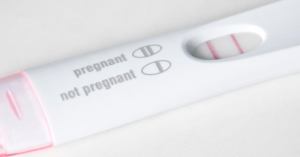As the spooky season draws near, a popular confectionery item has become the subject of a serious safety concern. Heron Foods, a UK discount grocery chain, has initiated an urgent recall of its Smileys Surprise Egg, a favorite among young consumers. This action comes in response to a critical oversight in product labeling, potentially endangering individuals with specific food allergies.
The Food Standards Agency (FSA) has issued a stark warning regarding the presence of undeclared hazelnuts in the product. “Heron Foods is recalling The Smileys Surprise Egg because it contains hazelnuts (nuts) which are not mentioned on the label. This means the product is a possible health risk for anyone with an allergy to hazelnuts (nuts),” the agency stated.
Videos by PopCulture.com
In light of this discovery, the FSA has provided clear guidance for consumers: “If you have bought the above product and have an allergy to hazelnuts (nuts), do not eat it. Instead, return it to the store from where it was bought for a full refund.” For those seeking additional information, Heron Foods has established a dedicated email address: [email protected].
The recall encompasses all package sizes and batch codes of the Smileys Surprise Egg, with the affected products bearing a best-before date of Aug. 30, 2025. Heron Foods has assured customers that they can return the product to any of their stores for a complete refund, regardless of whether they possess a receipt.
To assist consumers in identifying the affected products, Heron Foods has provided specific instructions: “We are recalling the Surprise Egg product due to its containment of hazelnuts (nuts) not mentioned on the label.” They further advise, “The batch code and best before can be found on the edge of the product. If you have bought the Smiley Surprise Egg as detailed above, and you have an allergy to hazelnuts (nuts), do not eat it.” The company recommends that customers “check if you have bought the affected batch code(s)/best before date of the Smiley Surprise Egg” and suggests “taking a picture of this notice or writing down the batch code/best before date for reference at home.”
This recall reinforces the critical nature of accurate food labeling, particularly concerning allergens. Hazelnut allergies can manifest in various ways, ranging from mild discomfort to potentially life-threatening reactions. Common symptoms include itching, hives, swelling, difficulty swallowing, vomiting, and shortness of breath, according to National Institutes of Health (NIH). Medical professionals strongly advise individuals experiencing these symptoms to seek immediate medical attention.
The FSA has taken this opportunity to educate the public on the recall process. They explain, “Sometimes there will be a problem with a food product that means it should not be sold. Then it might be ‘withdrawn’ (taken off the shelves) or ‘recalled’ (when customers are asked to return the product).” The agency further clarifies that recalls are often necessary when “there is a risk to consumers because the allergy labelling is missing or incorrect or if there is any other food allergy risk. When there is a food allergy risk, the FSA will issue an Allergy Alert.”








